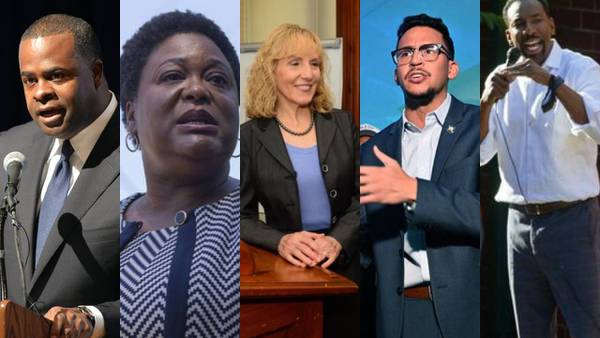Georgia goes to the polls tomorrow for several elections, but the race for Atlanta mayor is the most high-profile.
Fourteen candidates are vying to replace Mayor Keisha Lance Bottoms, who had announced in May that she was not running for reelection.
The election is happening amid a spike in violent crime, as well as controversy over an effort by the residents of Buckhead to break off from the capital and create their own city.
The five leading candidates for mayor include Atlanta City Council President Felicia Moore, former Mayor Kasim Reed, council members Antonio Brown and Andre Dickens and attorney Sharon Gay.
The latest poll by The Atlanta Journal-Constitution shows the race for Atlanta mayor is a tossup, with Reed and Moore in a statistical dead heat and nearly 41% of likely voters still undecided.
On Oct. 10, WSB-TV held its own debate with the top five candidates running for mayor. The debate focused mainly on the biggest issue facing the candidates: crime and public safety.
The runoff election day for the races will occur Tuesday, Nov. 30. A runoff will occur if none of the candidates get more than 50% of the vote.
Voting in Georgia’s new election law
Under Georgia’s new voting law, voters will need to submit a driver’s license number, state ID number or other documentation when both requesting and returning absentee ballots.
Georgia’s voting law permits drop boxes if they’re located inside early voting locations, available only during in-person voting hours, and shut down when early voting ends the Friday before an election.
The new law bans distributing food and drinks to voters within 150 feet of the outer edge of a polling place or within 25 feet of any voter standing in line.
Poll workers can still install self-service water receptacles for voters waiting in line. Handing out water is a misdemeanor, amounting up to a year in jail and a $1,000 fine.
